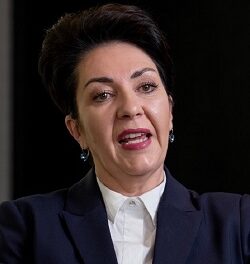
Bank Windhoek revamps its maternity benefit payment

Bank Windhoek continually and proactively looks at steps to showcase its commitment to diversity, equity, and inclusion, fostering a supportive environment where innovative gender collaborations are sought after and where all employees feel valued.
This statement was made by Bank Windhoek’s Executive Officer of Human Capital, Retuura Ballotti, last week, when she announced amendments to the Bank’s Maternity Leave Benefits.
Ballotti said that the development is part of Bank Windhoek’s Diversity Equity and Inclusion (DEI) programme towards improving the Employee Value Proposition.
The amendment ensures that Bank Windhoek’s female employees obtain their full basic salary less social security benefit payment. “Interestingly, over the past three years, we had 231 female employees who went on maternity leave. We are confident that this change will positively impact the lives of our female colleagues from 1 October 2023,” Ballotti said.
What does that mean?
Under the Social Security Act 34 of 1994, maternity leave benefits amount to 100% of a basic salary, capped at a maximum of N$15,000 per month for up to 12 weeks. The Bank has recognised this is not a sustainable model and drives gender disparity at work. Therefore, if a salary exceeds the N$15,000 Social Security Commission benefit, Bank Windhoek will cover the difference. For example, if a basic salary is N$30,000, the employer will provide N$15,000 in addition to the N$15,000 from Social Security.
Asked why this development is fantastic news for Bank Windhoek’s female employees, Ballotti said that it helps address three key aspects: gender disparity, encourages gender diversity, and promotes inclusivity and retention. She emphasised that the Bank’s female employees will now receive their full basic salary during maternity leave, addressing the gender pay gap directly and promoting equal opportunities for all. “Our policy ensures that maternity benefits are utilised by employees promoting inclusivity and retaining female talent within our organisation,” she said.
Ballotti emphasised that the Bank will continue creating a collaborative, inclusive, and innovative workplace for existing and potential employees.












































